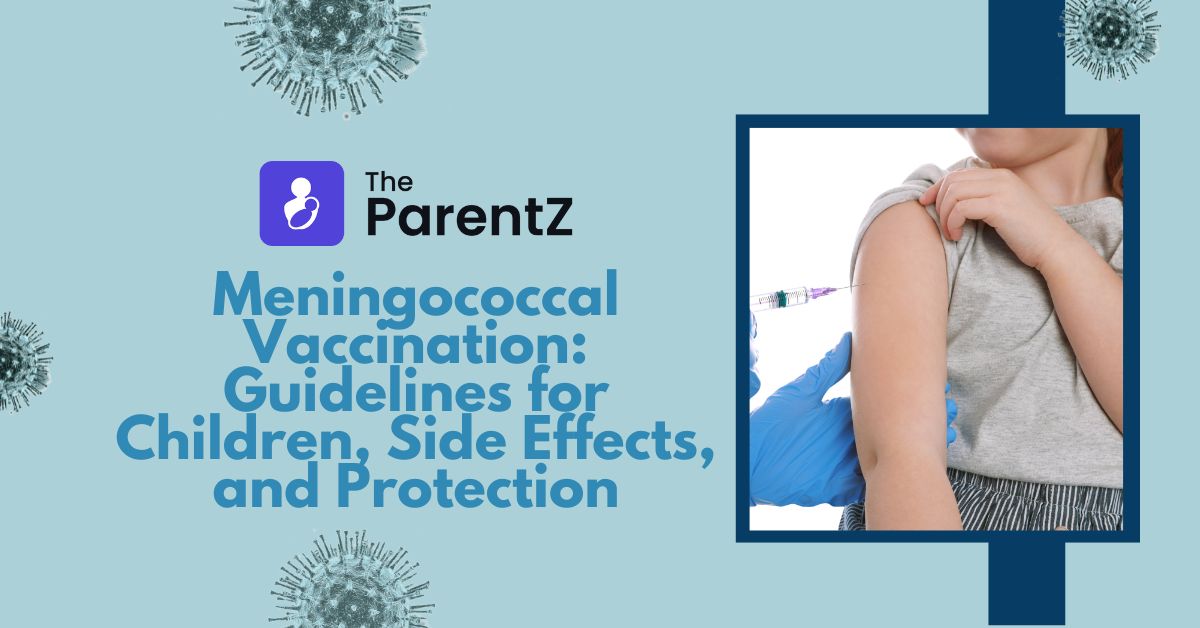When to give shot?
Two types of meningococcal vaccines are available and both have different schedules for administration. Polysaccharide meningococcal vaccines are given as a single dose to children greater than 2 years of age. These are effective against a combination of strains depending on the formulation which is bivalent, trivalent and quadrivalent.
Conjugate meningococcal type of vaccine which is given as a single injection in children less than 1 year of age. Conjugate vaccines which are licensed are of two types MenA and MenC. MenA is given as a single dose to children while MenC is only recommended as a single dose for children over 1 year. For children aged 2-11 months, two doses are given with a minimum gap of 2 months in between.
Why should the shot be given?
Meningococcal vaccines are given in children to induce immunity against the meningococcal bacteria in their body. WHO recommends that the vaccine should be added in the large-scale vaccination programme of the countries where the disease is prevalent. Even though our country has not yet introduced pneumococcal vaccines in the immunisation schedule, you should consider it for the protection of your child.
What are the side effects?
The side effects which develop following meningococcal vaccination are:
- Local reactions may develop. This includes pain, swelling and redness in the area where the vaccine was injected. This is not a cause for concern and it will resolve spontaneously over the next few days.
- A transient fever may develop post vaccination. Fever can be treated at home itself with antipyretics such as paracetamol being given. This thing to consider during giving your young child medicine is that the dose should be correct according to the age and weight of the child and overdosage has to be avoided.
What is meningococcus?
Meningococcus is a group of bacteria which produces what is commonly known as brain fever in children. It causes meningococcal meningitis, an acute infection which is highly communicable. Meningitis or cerebrospinal fever is caused by Neisseria meningitidis. It has 12 subtypes of which 6 types cause the invasive disease.
What are symptoms of meningococcal infection?
The symptoms of a meningococcal infection are distinct which include:
- The child suddenly develops a sudden intense headache.
- This headache is accompanied by a stiff neck. The muscles of the neck become rigid and the child feels pain when trying to move the neck.
- There is onset of high fever along with the feeling of nausea and vomiting.
- Other neurological symptoms which show involvement of the brain can also be present. These are checked by your healthcare provider.
- If instead of the brain the bacteria spreads in the bloodstream, there is production of septicaemia. Septicaemia by the bacteria can lead to development of rashes over skin, circulatory collapse and shock.
Is meningococcal infection serious?
The meningococcal infection is definitely a serious infection as it affects the brain of the child. It is also serious for your child as children develop worse infection as compared to adults. For untreated cases, the prognosis is also not good. Meningococcal meningitis produces severe symptoms and even on treatment several children succumb to the infection or may lead to several complications.
How does meningococcal infection spread?
Meningococcal infection spreads from person to person by droplets. It spreads on close personal contact with an infected person. Coughing, talking and sneezing of an infected individual releases droplets which may contain the bacteria and spreads on coming into contact with an uninfected child. The site of entry in the body of the child is the nasal route.





Be the first one to comment on this story.